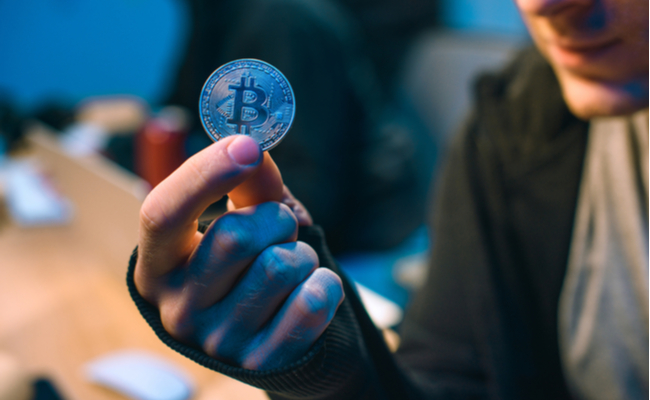How to avoid a Bitcoin scam and other crypto schemes
Perhaps you noticed the rise in bitcoin scams during the pandemic. So many people have lost money on these schemes, giving cryptocurrencies a bad rap. Is bitcoin truly a scam, or is there more to this digital asset than most people realize?
Before we go through the bitcoin scams, we have to set a clear view of what bitcoin is. Then, we will look at the many reasons why we see more of these. Later, we will see the different types and the various ways you can avoid crypto schemes.
Scams have been around long before crypto entered the mainstream. Unfortunately, scammers see it as a new way to use old schemes. Yet, you may still use the tried and tested ways of avoiding scams for these new ones.
What is bitcoin?

One of the biggest reasons bitcoin scams are a “thing” is that people know little about it. For example, do you know the recent bitcoin price? How about its uses in the real world?
If you don’t have any idea how to answer these questions, you’re likely to fall for bitcoin scams. So what is bitcoin, anyway? It all started with someone with the name Satoshi Nakamoto.
In 2009, he released a concept for a decentralized financial system. It will run without the need for banks or central banks. Instead, people will help make this system work for them.
People with PCs may participate in operating the bitcoin network. It’s otherwise known as a blockchain. More importantly, a digital currency serves as an essential part: bitcoin or BTC.
It incentivizes more people to volunteer in running the BTC network. They will serve as miners, confirming bitcoin transactions by finding a certain code.
The first one to get the “winning solution”, a new block gets added to the blockchain. Finally, the winner receives a block reward in the form of more bitcoins.
Ever since its launch, we now have more cryptocurrencies. Since bitcoin was the first, people tend to interchange it with cryptos. So when people say “bitcoin scam”, it may not involve BTC!
Why are there more bitcoin scams?
Most people don’t know how bitcoin works. Some of you might have jumped to this section! Don’t worry, though. Cryptocurrency can be a tricky subject for most people.
You probably know bitcoin because of news reports on people getting rich from it. Your social media feeds might be filled with posts about crypto.
If not, you probably heard of big celebrities promoting them. For example, you may have followed Tesla CEO Elon Musk and his Dogecoin tweets earlier this year.
In other words, most people are familiar with bitcoin as a mysterious asset that celebrities like. The FTC says this gives the cryptocurrency trend a sort of “Wild West vibe.”
Unfortunately, scammers see this as a great opportunity. Many of them know this lack of knowledge about cryptos. As a result, they take full advantage of it.
Read More: How Cryptocurrency Scams Work
What are the types of bitcoin scams?
Now, we’ll go through some of the most popular crypto scams out there. You’ll notice how they’re common scams, but they involve bitcoin. Let’s look at each of them closer:
- Crypto investment scams – A company or person may promise you financial freedom with cryptos. Just buy some coins, then transfer them to this entity, and they promise to pay you back with interest. Sadly, you can’t get your money back unless you pay them more.
- Blackmail – You may get a message from an unknown email address about your embarrassing photos. Then, they’ll threaten to release the pics if you don’t send cryptos. The FTC says to report such incidents to the FBI as soon as possible.
- Social media scams – Someone may create a fake account of one of your friends. Afterward, they’ll pose as your friend and ask for cryptos. Others go a step further by hacking celebrity social media accounts. Then, they’ll use it to request cryptos from their followers.
- Fake websites – Tech-savvy scammers may create fake websites. If you click them, they could send ransomware that locks your PC until you send cryptos. Others may collect your personal information and use that for other schemes.
- Pump and dump scheme – This often involves a person who owns a certain cryptocurrency. They “pump” the coin by convincing people to invest, jacking up the price. Once it hits a high enough price, they “dump” by selling all the coins. Billionaire Mark Cuban got hit with this when he invested in Iron Titanium.
How do I avoid cryptocurrency scams?
As we said, scams have been around longer than bitcoin. Let’s take Ponzi schemes as examples. People named it after Charles Ponzi and his scam in 1920.
However, such a scam existed before Ponzi. The first one ever recorded was in 1879, and the perp was Sarah Howe from Boston. Unfortunately, scammers use bitcoin to reuse these old methods.
No matter what, the best defense against scams is still the same. People have used the following methods to stay safe against scams:
- Do your own research (DYOB) – This is a common term among crypto investors. Yet, this works for other types of investments. People are more likely to fool you if you barely know about assets. Always learn as much as you can before starting any investment.
- Keep calm, avoid FUD – This is another term that means Fear, Uncertainty, and Doubt. You may have felt it when people are following a trend you haven’t yet. First-time investors may sell all their coins after they see dips in value.
- Check where you’ll buy crypto – People often buy bitcoin from online cryptocurrency exchanges. You should be careful in choosing yours, though. After all, you’ll have to fill out your account with sensitive info, and you’ll also put lots of money in there, too!
- Decide where you’ll store cryptos – Crypto exchanges can hold coins for users. Yet, you could place your cryptos in a digital wallet for added protection. Even better, put them in a hard crypto wallet for utmost security.
Final thoughts
Cryptocurrency investments are like any other. It will not give you guaranteed returns, and you always risk losing money. This doesn’t mean you shouldn’t invest anymore.
If anything, this just means you need to learn more. For example, you may want to look at other cryptos or altcoins. We’ve seen many launch initial coin offerings, such as Automata (ATA).
Why limit yourself to cryptos? This could be your time to invest in conventional assets, including stocks, real estate, bonds, and many other options.
Please note that this article is meant for educational purposes. As we’ve stated throughout, research these assets yourself. Make sure you understand the risks before investing.
Related Articles
Learn more about bitcoin scams
Is Bitcoin legit and safe?
Bitcoin is 100% reputable as large firms and national governments are adopting it nowadays. As for its safety, you could ensure that by using hard crypto wallets. You should remember that bitcoin and other cryptocurrencies are highly volatile and expect the prices to shift between dramatically highs and lows.
Can 1 Bitcoin make you a millionaire?
You won’t be a millionaire with just one bitcoin if you’re from the US. The price of bitcoin was $41,441.96 at the time of writing. However, this is possible if you’re from another country. For example, one bitcoin is worth 48,873,504.36 in South Korea won.
Can I invest $100 in Bitcoin?
Most cryptocurrency exchanges let you start investing in cryptos with less money. So you can easily start your investment journey with just a hundred bucks. However, some may not let you do this because they have different rules. That’s why you should read about those before purchasing via these online platforms.




